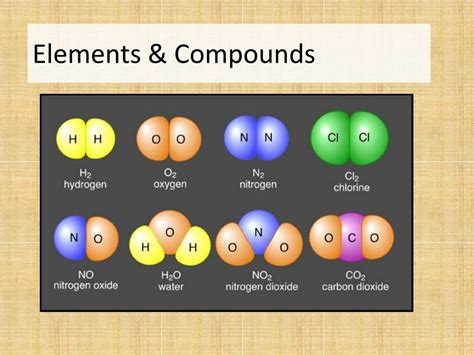Decoding Stubborn Belly Fat in Men
For many men, shedding belly fat can feel like an uphill battle, even with regular exercise and healthy eating. This ‘stubborn’ fat, often visceral fat stored deep within the abdominal cavity, is metabolically active and influenced by a complex interplay of hormones, genetics, and lifestyle. Tackling it requires more than just crunches; it demands a strategic, multi-faceted approach combining specific workout modalities with a meticulously planned diet.
Understanding the root causes – such as insulin resistance, elevated cortisol levels due to stress, and poor sleep – is the first step. The good news is that with the right strategy, it’s entirely possible to target and reduce this persistent fat.

The Integrated Workout Strategy
High-Intensity Interval Training (HIIT)
HIIT is a powerhouse for fat loss. By alternating short bursts of intense anaerobic exercise with brief recovery periods, HIIT significantly boosts your metabolism both during and after the workout (the ‘afterburn effect’). This leads to greater calorie expenditure and fat oxidation compared to steady-state cardio. Aim for 2-3 sessions per week, lasting 20-30 minutes, incorporating sprints, burpees, jump squats, or battle ropes.
Strength Training
Building muscle is crucial for fat loss. Muscle tissue is more metabolically active than fat, meaning it burns more calories at rest. Focus on compound movements that engage multiple muscle groups simultaneously, such as squats, deadlifts, bench presses, overhead presses, and rows. These exercises trigger a greater hormonal response, including testosterone and growth hormone, which are beneficial for fat loss and muscle gain. Incorporate 3-4 full-body or split strength training sessions per week.
Don’t neglect core strength, but move beyond endless crunches. Incorporate exercises like planks, bird-dog, anti-rotation presses, and hanging leg raises to build a strong, functional core that also supports overall fat loss.

The Crucial Diet Strategy for Fat Loss
No amount of exercise can compensate for a poor diet. Fat loss, especially around the belly, fundamentally requires a consistent calorie deficit. This means consuming fewer calories than you burn, forcing your body to tap into stored fat reserves. However, the *quality* of those calories is just as important as the quantity.
Prioritize Protein
High protein intake is paramount. Protein helps preserve muscle mass during a calorie deficit, increases satiety (making you feel fuller longer), and has a higher thermic effect than carbs or fats, meaning your body burns more calories digesting it. Aim for 1.6-2.2 grams of protein per kilogram of body weight from sources like lean meats, fish, eggs, dairy, and legumes.
Focus on Whole, Unprocessed Foods
Base your diet around whole foods: lean proteins, plenty of vegetables, some fruits, healthy fats (avocado, nuts, seeds, olive oil), and complex carbohydrates (oats, quinoa, brown rice, sweet potatoes) in moderation. These foods are nutrient-dense, fiber-rich, and promote stable blood sugar levels, which is key for reducing insulin spikes that can encourage fat storage.

Limit Sugars, Refined Carbs, and Alcohol
These are major culprits for belly fat accumulation. Sugary drinks, processed snacks, white bread, and excessive alcohol intake contribute empty calories, trigger insulin spikes, and promote fat storage in the abdominal area. Drastically reducing or eliminating these from your diet will yield significant results.
Stay Hydrated and Boost Fiber
Drinking plenty of water supports metabolism, satiety, and overall health. Fiber, found in vegetables, fruits, and whole grains, aids digestion, helps you feel full, and can improve gut health, which is increasingly linked to weight management.

Beyond Diet and Exercise: Lifestyle Factors
While diet and exercise form the foundation, neglecting other lifestyle aspects can sabotage your efforts.
Prioritize Sleep
Poor sleep disrupts hormones like cortisol (stress hormone) and ghrelin/leptin (hunger/satiety hormones), leading to increased cravings, reduced willpower, and greater fat storage, particularly around the midsection. Aim for 7-9 hours of quality sleep per night.
Manage Stress
Chronic stress elevates cortisol, which signals the body to store fat, especially in the abdominal area. Incorporate stress-reducing activities like meditation, yoga, hobbies, or spending time in nature.
Consistency and Patience
Shedding stubborn belly fat is a marathon, not a sprint. Consistency in your workout and diet strategy is far more important than intensity in short bursts. Be patient, track your progress (not just weight, but measurements and how clothes fit), and make sustainable changes.

Conclusion
Effectively shedding stubborn belly fat for men requires a holistic and consistent approach. By integrating high-intensity interval training, strength training with compound movements, a calorie-controlled diet rich in protein and whole foods, and managing crucial lifestyle factors like sleep and stress, you can create an optimal environment for fat loss. Remember, it’s about making sustainable changes that lead to long-term health and a leaner physique.




